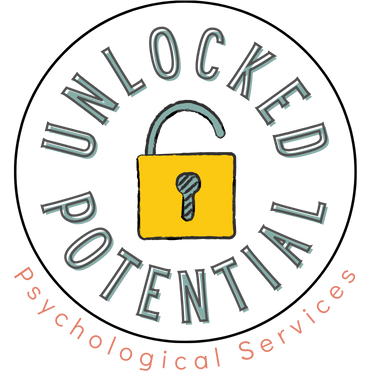
Community Consultation & Training
Specialized Training for Professionals in a Variety of Settings
Do you want to improve the quality of care you provide in your professional setting? Our psychologists have unique expertise in developing services and skills to improve care for even the most complex children.
Unlocked Potential offers training packages tailored to the needs of a variety of settings and professionals, covering both direct care providers, educators, and administrative/support staff. Our community consultation & training program is designed to cater to a wide range of settings, including, but not limited to, primary and specialty medical care, dentistry, mental health, education, and rehabilitation therapy.
We focus on enhancing communication skills, evidence-based practice, and a child-centered approach to working with individuals who have neurodevelopmental and mental health diagnoses. We also provide a breadth of related materials, like handouts, parent guides, resource packets, and professional tip sheets that will guide your work.

Training topics
-
Seeking to enhance your understanding of Autism and/or ability to best care for autistic individuals in your professional setting? 1 in 36 children has a diagnosis of Autism Spectrum Disorder.
Presentations are designed to answer the specific questions you have and the ones that you didn’t know you had.
Attendees will learn foundational behavioral principles and corresponding interventions that are easy to implement in various settings. They will also learn the skills necessary to teach these interventions to families.
A thorough review of commonly comorbid medical and mental health concerns will help to establish protocols for referrals to specialists as needed.
-
Trainings focus on the foundation of diagnosing and understanding ADHD, with careful consideration of other mental health and behavioral concerns that can cause diagnostic overshadowing.
We will then go a step further to talk about evidence-based treatment and supports across settings that are shown to improve outcomes for individuals with ADHD.
-
Many practitioners are feeling helpless in the wake of the COVID-19 pandemic when presented with questions and concerns about a child’s learning, memory, and retention of information in the school setting.
Training focuses on evidence-based screening for learning disability and appropriate resources for thorough assessment and guidance for families.
Attendees learn what constitutes a learning disability as well as behavioral and medical concerns that commonly co-occur.
Resources to help children succeed in school are reviewed and provided.
-
Emotional disorders, including anxiety and depressive disorders, are highly prevalent. Children and teens face significant stressors and often lack the coping skills to effectively navigate and manage them.
Our emotional disorder trainings focus on the screening and identification of emotional disorders in children and teens, communication skills to help motivate families to engage in mental health care, and basic interventions in the clinical setting to help children and families while they wait for intensive services.
-
Disruptive behavior disorders include oppositional defiant disorder (ODD) and conduct disorder. The focus of our Behavior Disorder training is to understand foundational knowledge about BD, its prevalence, and its biological bases.
Participants will learn evidence-based treatment strategies and skills to address acute behavior concerns in various settings.
-
A large number of medical and mental health providers report significant deficits in their knowledge and comfort levels when teaching parents how to educate their children about sexual health and safety. This lack of comfort is compounded when the child has a neurodevelopmental disorder.
We provide the expertise to “teach the teacher” by training providers to teach parents the information they need to promote their child’s sexual safety.
Topics include: developmentally appropriate conversations related to sexuality and strategies to manage and redirect self-exploration.
-
Due to advances in identifying individuals with neurodevelopmental disorders, more people are better able to understand themselves and how their strengths and weaknesses impact them in the workplace.
Despite this growth in individual knowledge, there are few programs built to help workplaces support neurodiversity. We provide employees with a clear understanding of Autism Spectrum Disorder, Learning Disability, and ADHD, in order to facilitate better team cohesion and understand how diverse workforces have the potential to strengthen teams.
-
We don’t claim to be experts in everything, but we know a lot of people! Send us a message about the topic you are interested in. If we can’t help, we’ll try to guide you to someone who can.
Examples of previous trainings & workshops
“Supporting students with Autism Spectrum Disorder” presented at the West Virginia School Nurse’s Conference
“Evidence based treatments for individuals with Autism Spectrum Disorder” presented to Rainelle Medical Center’s mental health professionals
“You’ve got this! Empowering and training parents in the role of parent as advocate” presented to Developmental Behavioral Pediatrics professionals at their annual conference
“Autism: Early identification, diagnosis, and next steps” presented to Monongalia County Head Start
“Autism Spectrum Disorder in the Emergency Department” presented to the Department of Emergency Medicine at Berkeley Medical Center
“Behavioral strategies for evaluating sleep disorders in individuals with developmental disabilities” presented at the WV Sleep Society’s 16th Annual Sleep Conference
“Behavioral management of common problems in primary care” presented to WVU Medicine pediatric residents
“School and peer relationships” presented to WVU Medicine East family medicine residents
“What providers need to know about Autism” presented to the WVU Health Sciences Department of Nursing
“Autism primer” presented to law enforcement officers during Crisis Intervention Training through the WV Office of Drug Control Policy
“Autism in the college classroom” presented to faculty at Spalding University
“The effects of sex education on the sexual knowledge of adults with intellectual and developmental disabilities” presented at the American Association of Intellectual and Developmental Disabilities Annual Meeting

free Consultation
Learn what training is right for your staff.












